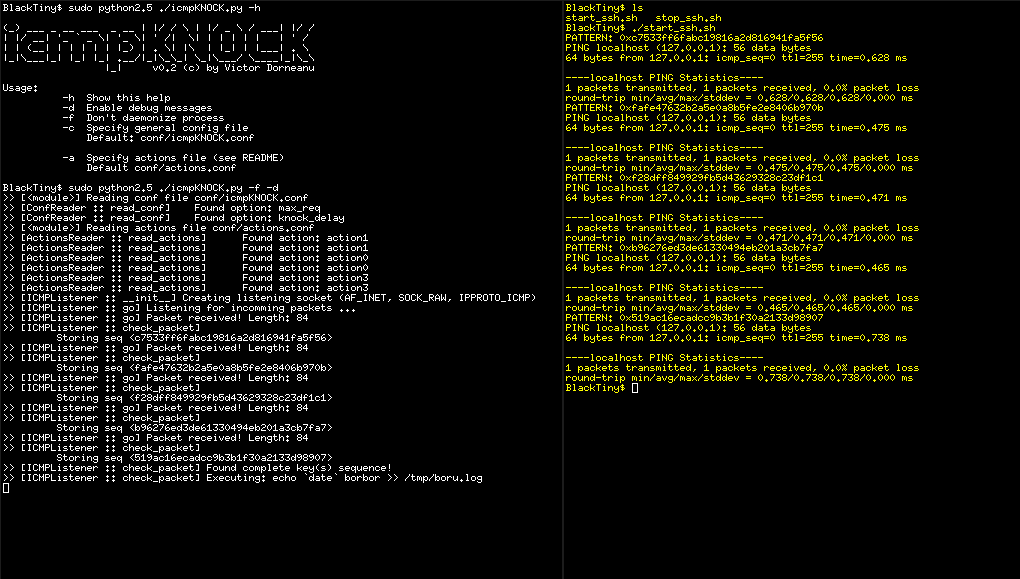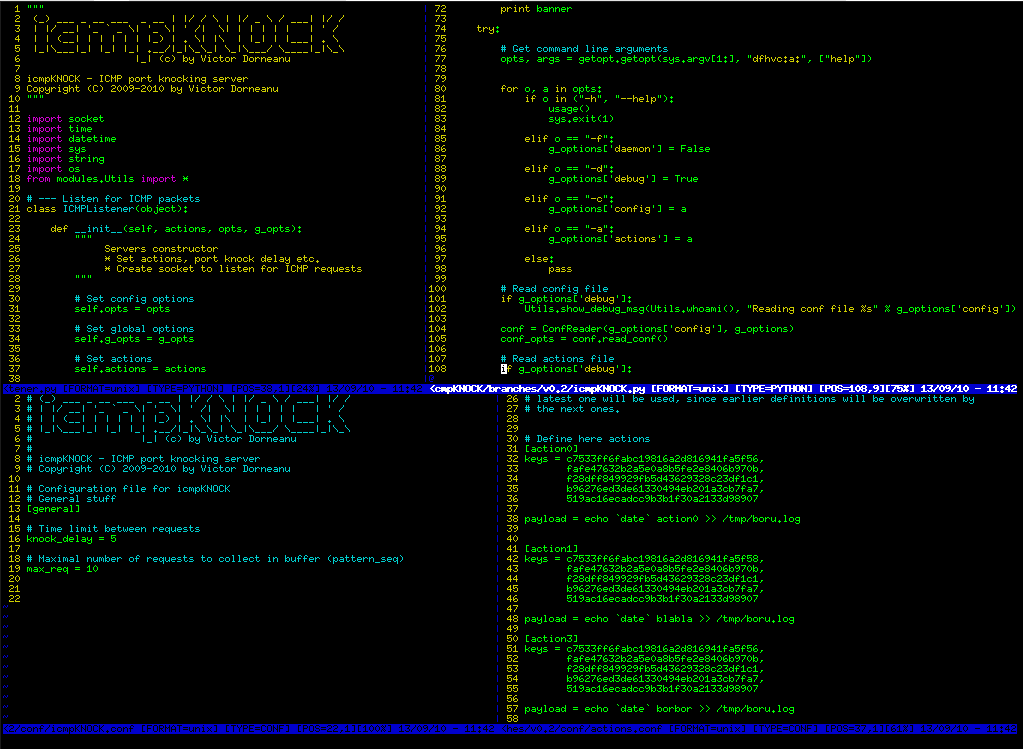Whats this about? #
If you’re familiar with port knocking, you should know the basics and how this technique basically works. If don’t have a clue what I’m talking about, feel free to have a look at the Links section. Most port knocking tools are listening for TCP or UDP packets to arrive on specific ports in a specific order. icmpKNOCK is waiting for ICMP echo requests and checks their payloads. Packets that match given criteria trigger some action, e.g. open/close port(s) etc. The main advantage of this tool is the fact that this approach works with all standard ping tools, regardless of your operating system.
How to use it #
a) Define some unique keys (MD5, SHA1 etc.):
b) Define actions (check out icmpKNOCK_actions.py)
c) run icmpKNOCK.py as root!!! otherwise you won’t be able to listen for incoming ICMP requests
d) Using your ping utility you can pass hex patterns to the requests:
|
|
Be aware of the order in which you send the packets. Example:
|
|
When you run ping keep in mind to first send key1, then key2, then… You got it, right? Example:
|
|
Links #
- http://www.portknocking.org/
- http://www.faqs.org/rfcs/rfc791.html * http://www.faqs.org/rfcs/rfc792.html
Download here!

